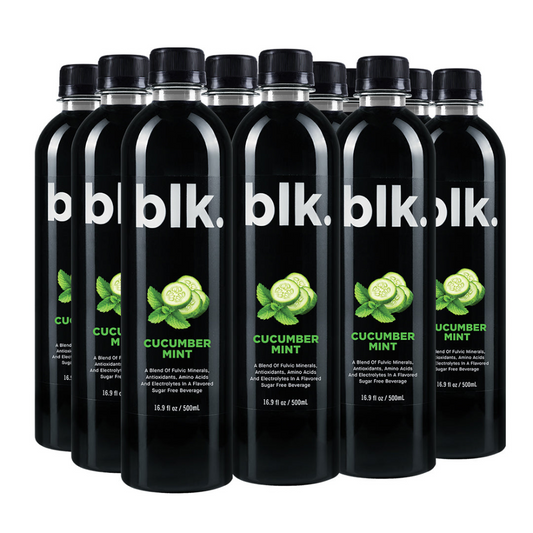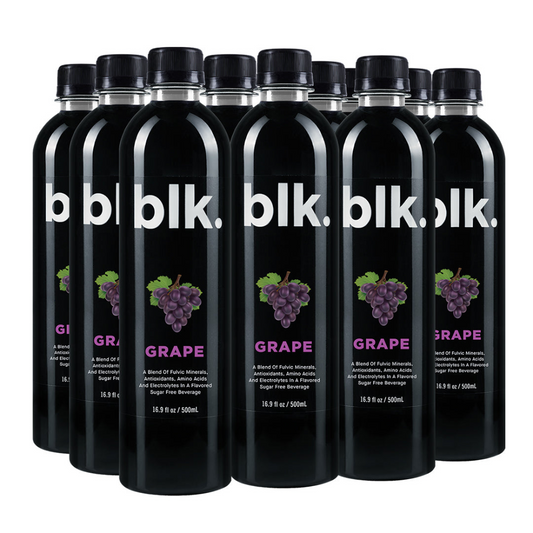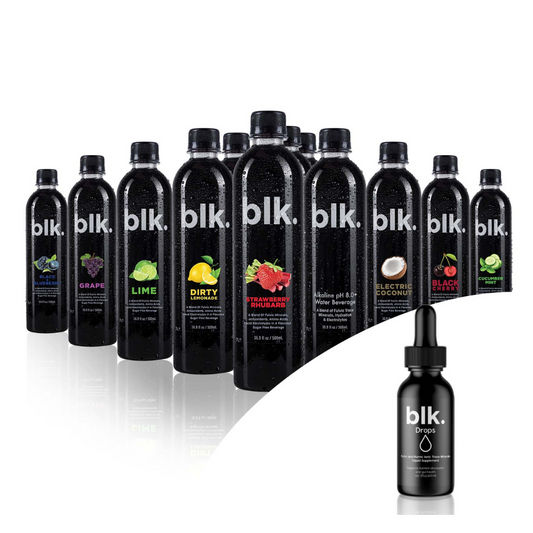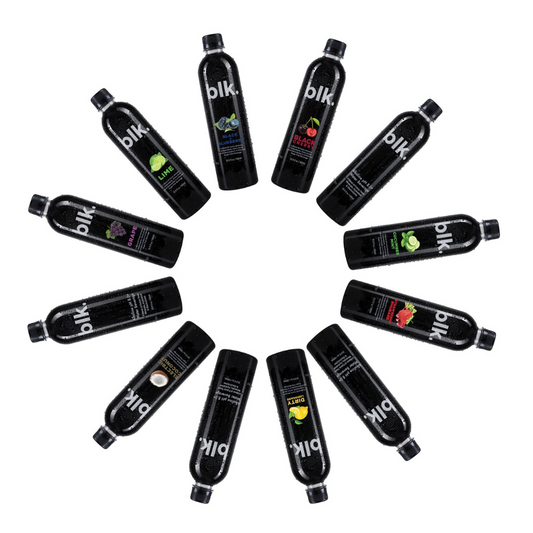
Unlocking the Potential of Protein Hydrolysates
Unlocking the Potential of Protein Hydrolysates
This article seeks to give more information about the following:
- What are protein hydrolysates?
- How protein hydrolysates differ from other forms of protein.
- How protein hydrolysates are processed.
- The benefits of protein hydrolysates
- The application of protein hydrolysates.
Dietary supplements have risen in recent years because of their potential benefits. Protein supplements are the most popular, and manufacturers have sought ways to improve their products. Derived from the enzymatic breakdown of proteins, hydrolysates are an upgrade to protein supplements and have superior qualities to other protein powders.
However, many people are still unfamiliar with protein hydrolysates' benefits, such as improved digestibility, enhanced solubility, and increased bioavailability of amino acids. This makes hydrolysates protein an excellent choice for sports nutrition, clinical nutrition, and functional foods.
Unlocking the potential of protein hydrolysates is only possible with a deeper understanding of their beneficial properties and how they are produced for various applications. In this context, Ripped.com has done extensive research and shares the possibility of protein hydrolysates and their application for our readers.
What are Protein Hydrolysates
If you are an avid user of protein powders and understand their properties well, you must have come across the new formulation of protein powders in the form of protein hydrolysates.
Protein hydrolysate is one of the forms of protein powders—the other ones being protein concentrates and protein isolates. So, what differentiates them? All these forms of protein can be obtained from the same source, but how they are processed sets them apart.
Protein concentrate processing is moderate, with a protein concentration of about 40%-80%. It varies with different manufacturers and brands. Less processing means protein concentrate contains other nutrients like carbohydrates, fats, and vitamins.
Conversely, protein isolates are processed more and undergo further processing to increase the protein content. Protein is "isolated" from other substances, and the protein content is usually higher than 90%. It is a purer form of protein and has fewer carbohydrates and vitamins.
Protein hydrolysates undergo a hydrolyzation process whereby the protein is "hydrolyzed" to make it more soluble and easily absorbed by the body. The process involves heating the protein in acid to break it down into smaller dipeptides and easily absorbed tripeptides. The process resembles what happens in the stomach. By mimicking the digestive process, hydrolyzation makes absorption easier.
Recommended Protein Hydrolysates Products
Given the effectiveness of protein hydrolysates, many products have flooded the market. Here is a list of some of the best protein hydrolysate products to help you narrow your choices.
- Blackstone Labs: 3-Whey Three Protein Source Blend Vanilla 27 Servings
- Ruleone: Naturally Flavored R1 Protein Vanilla Creme 36 Servings
- Musclepharm: Combat Protein Powder Chocolate Peanut Butter 26 Servings
- Gaspari Nutrition: Myofusion Cookies & Cream 24 Servings
- Ruleone: R1 Protein Mint Chocolate Chip 76 Servings
Importance of Protein Hydrolysates in the Food and Supplements Industry
Protein hydrolysates have unique qualities that make them favorable in the following ways.
Faster Absorption
Because protein hydrolysate is "pre-digested" through hydrolysis, it is digested faster and absorbed rapidly from the gut. The nutrients, therefore, are incorporated more quickly into the skeletal muscles, which is beneficial in several ways, including faster recovery after strenuous exercises.
Less Likely to Cause Stomach Issues
Other forms of protein, for example, whey protein concentrate, may contain substances like lactose which may be difficult for some people to digest. The good news is that hydrolyzed proteins have little to no lactose, which is easier for the stomach.
Lower Carb and Fat Content
Fats and carbs are enemies of progress in the ideal weight journey. Fortunately, for protein hydrolysates, the hydrolysis process increases the protein concentration, lowering carb and fat content.
Enhanced Energy
Insulin is a vital enzyme responsible for regulating energy levels. Research has shown that protein hydrolysates significantly increase the production of insulin. An increase in insulin production, in turn, facilitates faster muscle protein synthesis.
Faster Muscle Recovery
Strenuous exercises may induce muscle damage. Protein hydrolysates facilitate faster muscle repair by rapidly absorbing into the muscles. A study showed that consuming protein hydrolysates within 6 hours of intensive exercises accelerated recovery.
Types of Protein Hydrolysates
There are different types of protein hydrolysates depending on where it is sourced. The following are examples of protein hydrolysates.
Whey Protein Hydrolysate
As the name suggests, whey protein hydrolysates are made from whey. Whey is the liquid part of milk that remains in the cheese-making process. It is dried and processed to produce whey protein powder. The whey protein powder is then hydrolyzed by heating it in enzymes or acids to break the protein into free amino acids. The process removes some of the lactose found in the milk. Therefore, it is easier to digest for people with lactose intolerance.
Whey protein hydrolysate is rich in all essential amino acids and, therefore, considered a whole protein. The essential amino acids are beneficial in many ways, including muscle building and recovery.
Casein Protein Hydrolysate
Casein is another protein that is found in milk. Hydrolyzed casein protein has been broken down into smaller peptides. Casein protein hydrolysates are usually used in infant baby formula because hydrolyzation makes it easier to digest and absorb. It also removes the lactose and other allergens which may affect the baby. That is why infants hardly ever get any allergies from baby formulas.
Soy Protein Hydrolysate
Soy protein hydrolysate is derived from soybeans which are then hydrolyzed to break it down. Soy is a plant-based source of protein and, therefore, an excellent option for vegans and vegetarians.
Collagen Protein Hydrolysate
Collagen is a protein produced by the body and found in the bones, skin, teeth, and tendons. It is vital in maintaining the structure of the body and the cells. It also has properties that facilitate the recovery of wounds.
As we get older, our body does not produce enough collagen. Older people take collagen supplements to help increase the production of collagen. Collagen protein is derived mainly from animal-based sources like meat from cows. Research has also shown that collagen can be found in high quantities in the scales and skin of marine animals like fish.
Production of Protein Hydrolysates
Protein hydrolysates are produced through hydrolysis. Hydrolysis is the breaking of chemical bonds with the addition of a water molecule. There are two production methods of protein hydrolysates; chemical hydrolysis and enzymatic hydrolysis. The technique which is used to hydrolyze a protein depends on its source. The main difference between the two is that chemical hydrolysis utilizes a chemical process using acids, while enzymatic uses a biological process through enzymes that catalyze the reaction.
Applications of Protein Hydrolysates
Sports Nutrition
Due to the potential benefits of protein hydrolysates, it is a supplement of choice for many athletes. One advantage we have already seen is that protein hydrolysates are rapidly absorbed into the body. The hydrolyzed protein is broken down into free amino acids and absorbed into the muscles.
Amino acids, for example, leucine, are responsible for muscle building and recovery. Intake of protein hydrolysates is therefore vital for muscle building and repairing.
A study investigated the relationship between protein hydrolysates and muscular performance. The findings showed significant muscle mass and strength improvement among protein hydrolysates participants.
Another study on whether protein hydrolysate was more effective than protein isolate in recovery found that their recovery time was much lower in the group that took protein hydrolysates than in protein isolates.
In short, protein hydrolysates perform better than other protein forms.
Nonetheless, there are contradicting results that claim different results. Therefore, more research should be conducted to determine the efficacy of protein hydrolysates in sports nutrition.
Infant Formulas
The digestive system of infants is usually not developed enough. Their dietary choices are, therefore, limited. Infant formulas ensure the child gets all the essential nutrients, especially if the mother cannot produce enough milk. Protein hydrolysates are one of the ingredients that are used in many baby formulas. This is because, during hydrolysis, the protein is broken down into free amino acids, dipeptides, and tripeptides which are easily absorbed. In layperson's terms, the protein is pre-digested, making it possible for an underdeveloped digestive system to digest it.
Substances like lactose are removed when the protein hydrolysate is broken down, reducing the infant's risk of developing complications.
Clinical Nutrition
In clinical nutrition, patients have different needs. Protein hydrolysates are a preferred alternative to intact protein in many formulas. Cow's milk is used in many formulas in clinical nutrition to provide protein support for a patient's nutritional needs. It is used primarily because it is readily available in large quantities and has high nutritional value. Protein hydrolysates are suitable because hydrolyzed protein removes substances like lactose and gluten. Therefore, people who have allergies to these substances will not be affected.
However, plant-based protein hydrolysates have recently gained traction and are being used to formulate medical nutrition.
Food and Beverage Industry
Due to technological advancements, protein hydrolysate, is now used in the food and beverage industries. Protein hydrolysate's chemical and structural properties make it suitable for food formulas. Their neutral taste enables them to be used in various foods to deliver nutritional needs, such as baked goods and sports drinks.
Cosmetics and Personal Care
There is evidence to suggest that protein hydrolysates have cosmetic properties. A property that makes protein hydrolysates a good option for cosmetic products is its substantivity to the skin. Substantivity here refers to the adherence of the cosmetic formulation to the skin. The outer layer of our skin is made of more dense keratin. Protein hydrolysates can penetrate deeper into the skin by forming polypeptide layers.
Protein hydrolysates prevent skin dehydration and maintain your skin's acid-base equilibrium. It makes products like lotions, moisturizers, and rejuvenating creams.
Side Effects of Protein Hydrolysates
Protein hydrolysates are safe for human consumption, and anyone can benefit from their use. However, the rule of thumb is that whenever you want to try a new supplement, you should consult a pharmacist or a qualified healthcare professional, especially if you have underlying medical conditions.
The moderate use of protein hydrolysates should not cause any side effects. However, some users have reported some side effects—a relatively small percentage. These include bloating, flatulence, cramping, and diarrhea. However, some of these effects may be a result of lactose intolerance.
Conclusion
In summary, protein hydrolysates are forms of protein broken down through hydrolysis into smaller peptides and free amino acids. They are essential supplements that have proved to be helpful in several ways. The hydrolysis process makes them easily and rapidly absorbed in the body. Rapid absorbability is a property that makes them popular in sports nutrition for muscle building and recovery. It is also used in other areas like clinical nutrition, cosmetics, personal care, and the manufacturing of baby formulas.
Different types of protein hydrolysates depend on where it is derived from, for example, whey, casein, collagen, and soy, each with its unique benefits.
Even though protein hydrolysates are excellent supplements with numerous potential benefits, they should not be a replacement for whole diets. They lack other crucial nutrients like carbohydrates, fats, and vitamins. The bottom line is protein hydrolysates are an excellent supplement for anyone looking forward to improving their overall health and reaching their fitness goals.
Frequently Asked Questions
-
How much protein hydrolysate should I take per day?
-
Can protein hydrolysates be used as a protein source for vegetarians and vegans?
-
Can children consume protein hydrolysates?
-
How long does it take for the effects of protein hydrolysates to be noticed?
-
Are protein hydrolysates safe for individuals with food allergies or sensitivities?
-
Do regulatory bodies approve protein hydrolysates?




